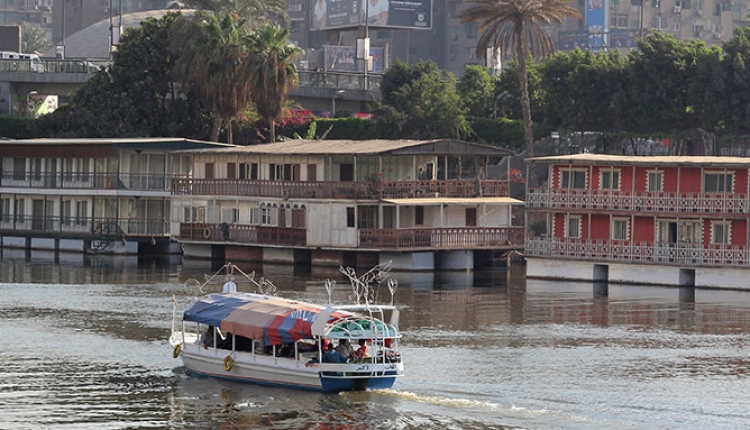For many locals and foreign tourists, the brightly painted wooden houseboats dotted along the River Nile are an iconic part of Cairo’s rich cultural and architectural heritage.
But starting this week, the last of those remaining— about 30 in total— are set to be destroyed or removed by the Egyptian authorities as part of what they describe as an effort to beautify the waterfront.
Some of the floating houses, permanently moored on the riverbank, are inhabited by poor residents, while others have been extensively restored. A few have been turned into restaurants, offices, and gyms.
More than 30 houseboats will be demolished. Not only are these houseboats homes to people who have lived there for decades, but some of them are historic monuments. They are part of our heritage which cannot be erased. #SaveCairoHouseboats #نداء_سكان_العوامات pic.twitter.com/SZNIaDrJRL
— Nora Zeid (@itsnorazeid) June 27, 2022
This decision to issue demolition orders was supported by Egypt’s government in a statement saying they were built decades ago without their permission and that their owners had not obtained the proper permits or licenses.
The ministry of irrigation has vowed to continue its efforts to remove moored homes from the river “in clear violation of the law.” He says it is “a clear message to those who transgress on the Nile” by the minister, Mohammed Abdel Ati.
Many of the locals own their homes, but they claim to have recently filed legal challenges against significant increases in official fees for boat parking and riverbank access.
Ahdaf Soueif, an Egyptian novelist and literary figure, who lives on a Kit Kat houseboat, said, “This is my home, my only home. I built it myself and I thought it would be my last home.”
In the evening, the banks of the Nile are alive with restaurants, cafes, and private sports clubs.
Several small businesses, such as felucca sailboat operators, were forced to close after Egypt’s government opened the first section of a new 5-kilometer (3-mile) walkway along Cairo’s corniche.
Riverbank development has triggered debate about the future of one of Cairo’s most historic spots and the city’s distinctive character.
As an insult to injury, the people who lose their homes are not receiving any compensation.










